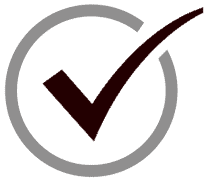Outforia Quicktake: Key Takeaways
- Bread, though not toxic to ducks, is harmful due to its lack of nutrition for them and the environmental impact of feeding it to them.
- Ducks are opportunistic omnivores with varied diets based on food availability and the species of duck.
- Dabbling ducks and diving ducks have distinct eating habits and preferred meals, consuming water plants, insects, grains, marine plants, fish, and aquatic insects.
- A domestic duck’s diet is rich in protein and energy, often supplemented with specialist poultry food. They can be fed balanced duck pellets, soaked wheat, lettuce, peas, sweetcorn, and wild foraged insects.
- Instead of bread, ducks can safely eat sweetcorn, lettuce, oats, rice, seeds, and peas.
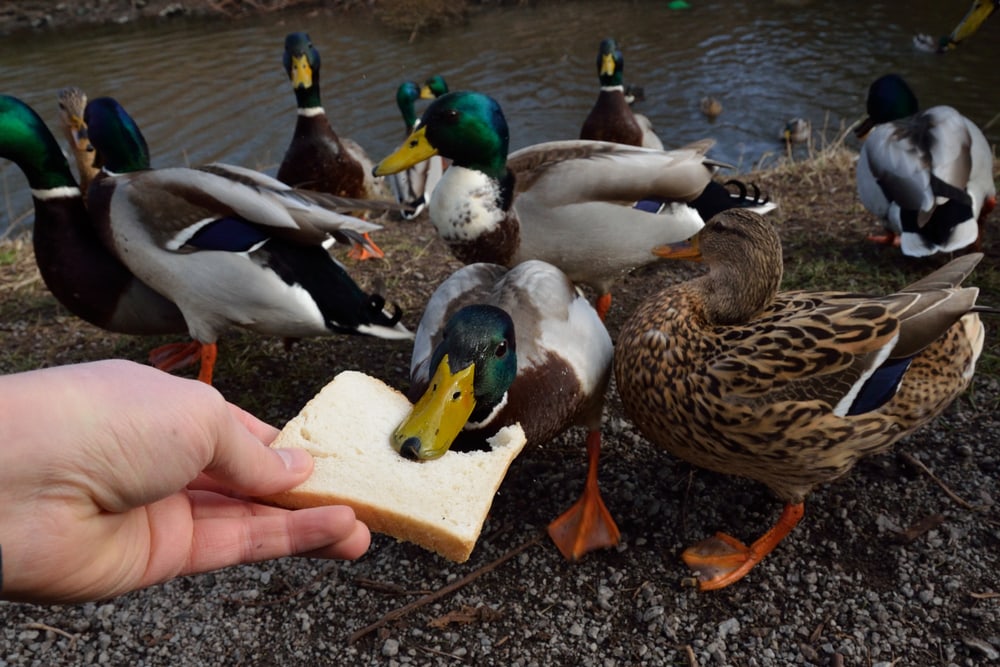
Let’s face it, we’ve all been that eager kid, just waiting to share our stale sandwich discard with these waterfowl. But is this innocent interaction truly harmless? Can ducks eat bread?
Contrary to popular belief, bread, although not inherently toxic to ducks, does far more harm than good. So, while ducks can eat bread, they really shouldn’t be fed any.
While it’s a satisfying sight to see ducks fighting over a piece of bread, the impact on their health and habitat tells a different story. But don’t retire your duck-feeding ambitions just yet.
You May Also Like: 30 Types Of Seagulls: Exploring The Amazing Variety Of These Seafaring Birds
What Do Ducks Eat in the Wild?
In the wild, ducks are surprisingly versatile eaters, or rather, opportunistic omnivores. Their varied diet is dictated by the availability of food and the species of duck.
For instance, some ducks prefer land-based greens, while others forage beneath the water’s surface.
Dabbling ducks and diving ducks
Ducks are broadly divided into two categories: dabbling ducks and diving ducks. Each category has specific eating habits and preferred meals.
Dabbling ducks (Anatinae), which include Mallards, Shovellers, Pintails, and Widgeons, munch on surface water plants, insects, and grains. You can often spot them in freshwater ponds, rivers, and estuaries.
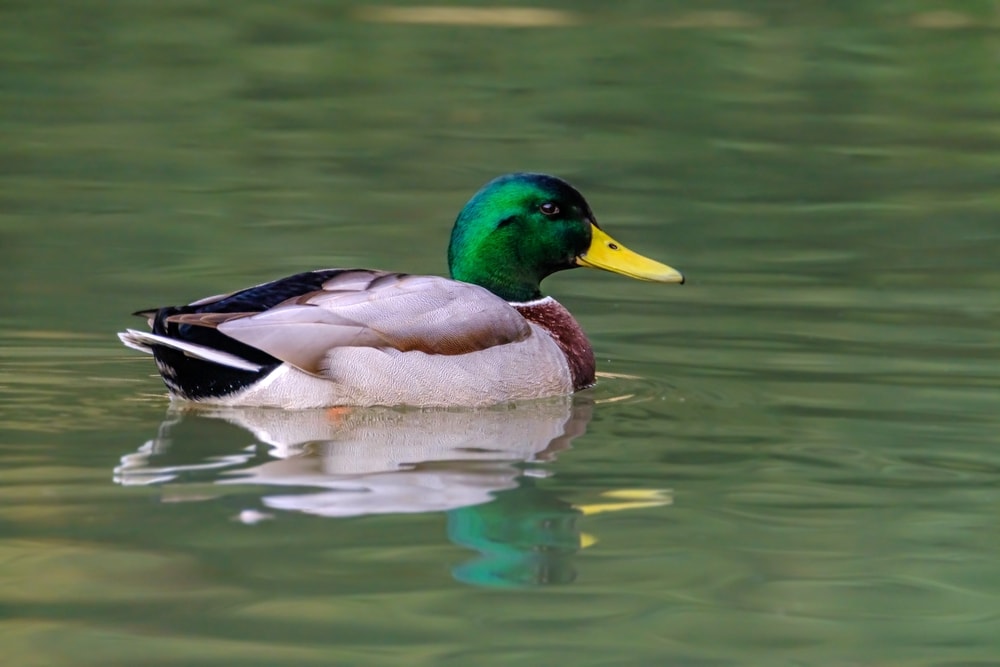
Diving ducks (Aythyini and Merginae), including Tufted ducks, Rosybill, Scaup, and Pochard, typically dive underwater for their meals, feasting on marine plants, fish, and aquatic insects..
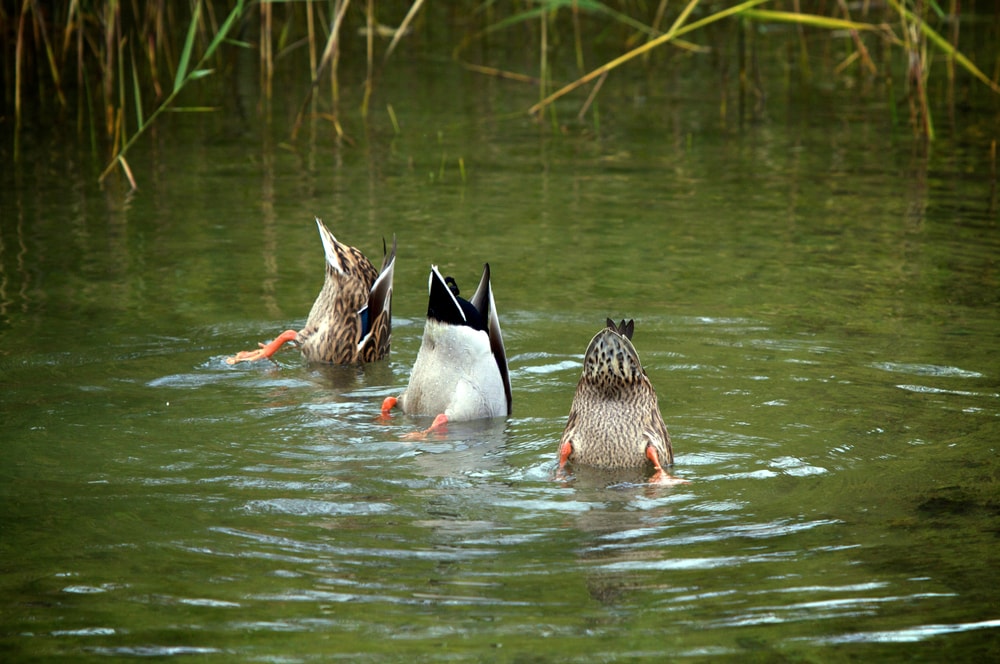
Seasonal changes in diet
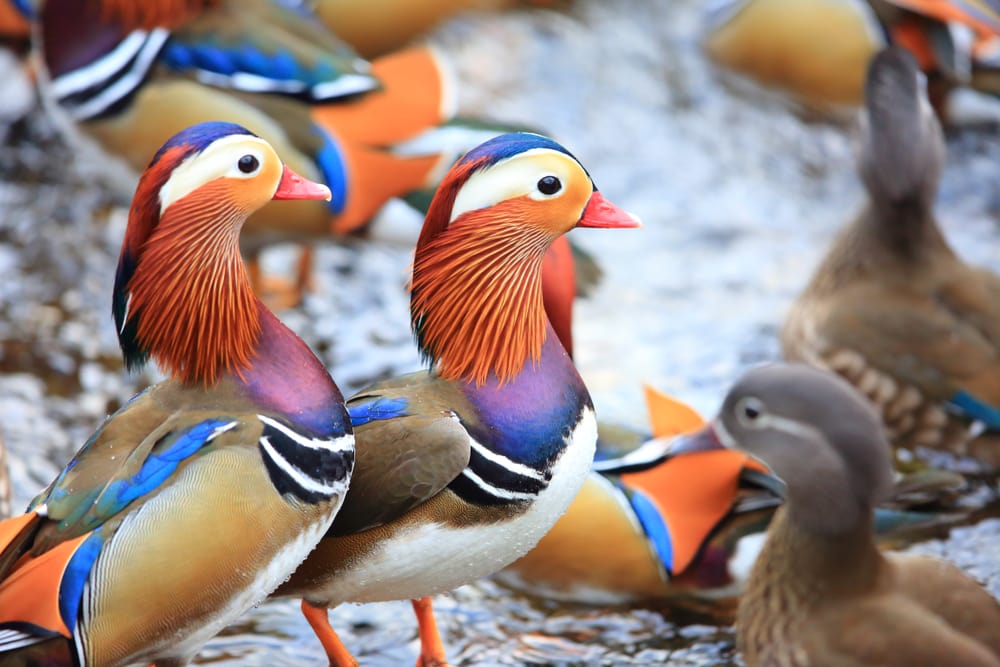
Some species of duck have seasonal changes in diet. They eat more animals in their diet in the breeding season and in the spring migration. Then, they eat more vegetation in the autumn migration and winter.
What Do Domestic Ducks Eat?
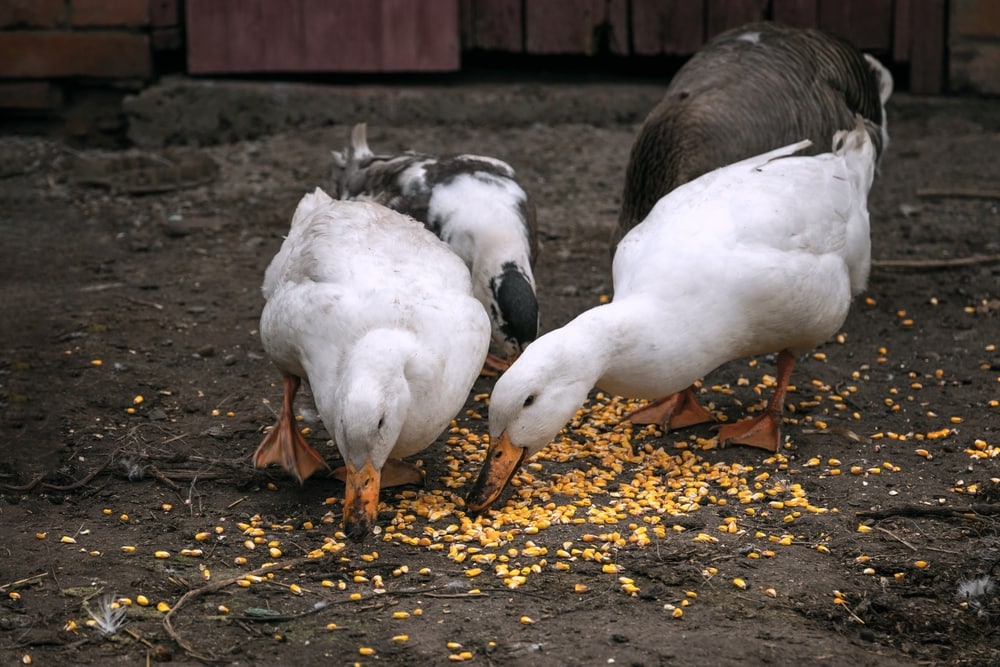
Domestic ducks have a diet that is richer in protein and energy than that of a wild duck. This is because they are producing eggs and/or meat for the table. They have less land area to forage from, so their diet must be supplemented with specialist poultry food.
Domestic duck breeds tend to be heavier and less able to fly, which is also why they need a lot of balanced duck food.
Egg laying ducks need pellet food with 16% protein. Laying ducks need food with 3-4% calcium in it. Drakes (male ducks) need only 1% calcium in their food. Too much calcium can make ducks ill. Below are the best foods to feed domestic ducks:
- Balanced duck pellets with 16% protein
- Soaked wheat (soaking the wheat makes it more digestible and dissuades predators)
- Lettuce, peas, and sweetcorn
- Wild foraged slugs, snails, insects from planted areas
You May Also Like: Can Flamingos Fly? Uncovering The Startling Reality
Why Do Ducks Like Eating Bread?
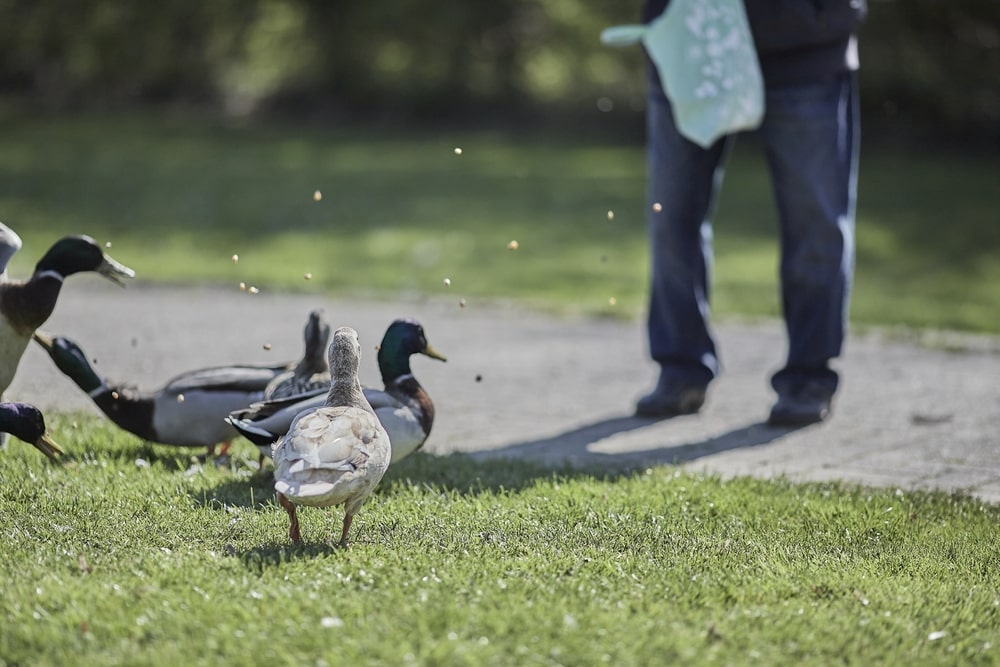
Ducks eat bread because it contains foods they would naturally eat, like grains or seeds. It’s a bit like when people eat junk food containing fat and salt. It’s not good for us, but people still like eating it!
It’s obviously easier to accept these handouts than to spend time foraging for wild foods, too.
Young wild ducks that become habituated to feeding on bread don’t learn vital foraging skills. This means they need to keep eating bread as they have become less able to fend for themselves.
Can Ducks Eat Bread? Is It Good for Them?
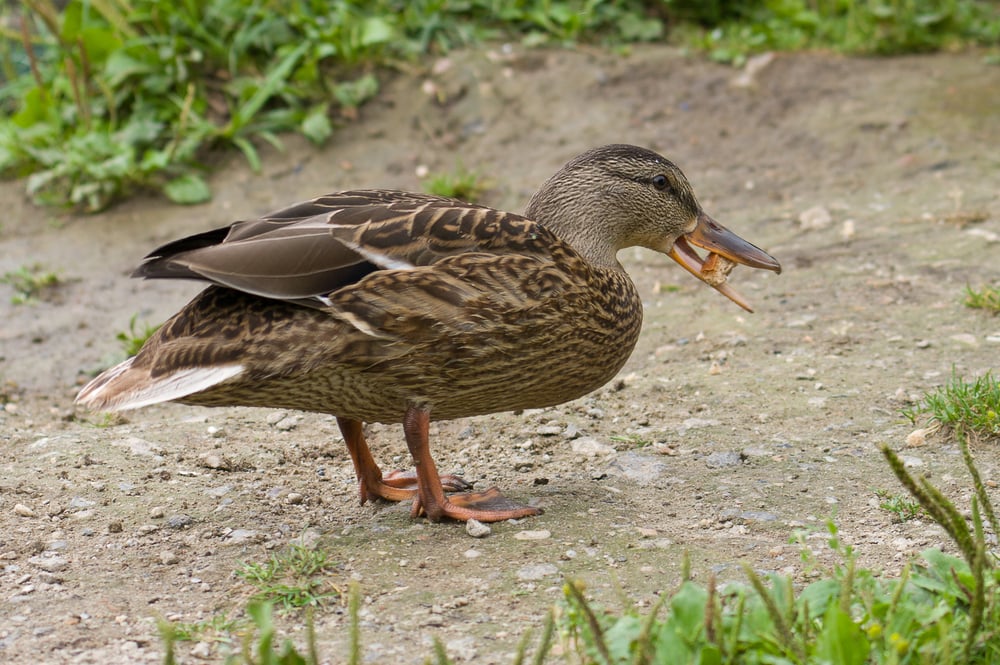
Bread is not a healthy food for ducks. Despite this, they love to eat it. The many reasons bread is not a good idea are:
Lack of nutrition
Bread is not very nutritious for ducks, but it fills them up. This stops them from eating food that is better for them. Ducks should be eating a wide variety of omnivorous foods.
Overcrowding
Feeding bread in the same spot causes crowds of ducks and other birds, like seagulls. This causes stress and aggressive behavior. It also causes piles of droppings to gather in one place. This can cause slipping hazards and disease.
Rats
Rats also love to eat bread. If people keep throwing bread in one spot, it builds up and attracts hordes of rats to the area. This can cause further complications like Weil’s disease, which is carried in rat urine. Possums and raccoons are attracted to the dropped bread in other areas of the world.
Miseducation
Young ducklings that rely on thrown bread don’t learn how to forage wild foods for themselves.
Angel wing disease and MBD
The high carbohydrates and protein in a bread diet can cause deformities.
Pollution
Uneaten bread can cause the rapid growth of cyanobacteria. These produce harmful algal blooms.
A Healthy Spread for Ducks: What to Feed Ducks
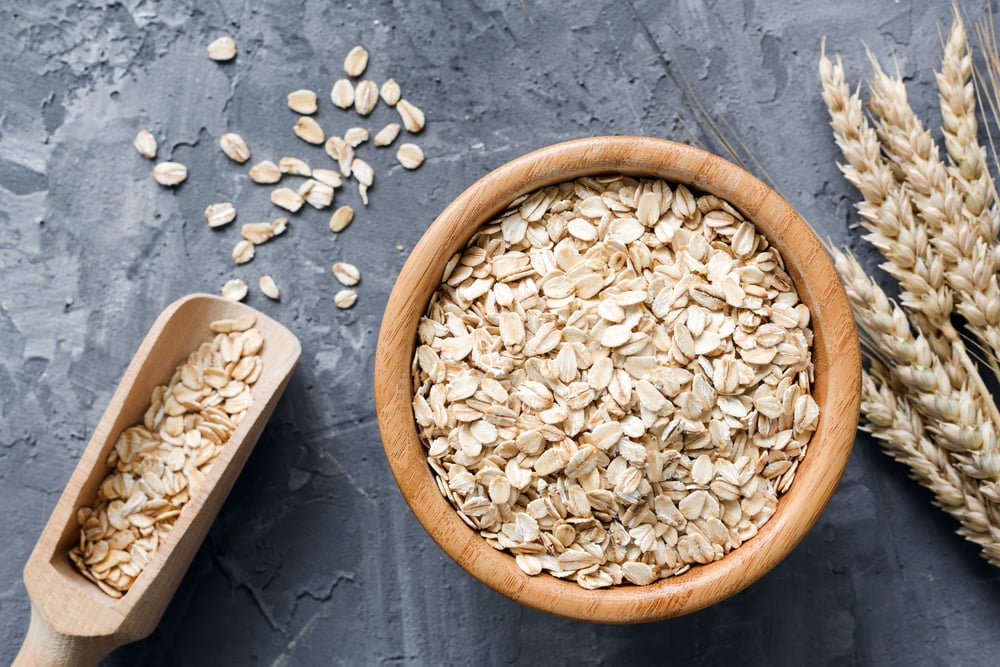
Here’s some foods you can feed ducks which are healthy. Strew them next to the water side. Even better, place them at the bottom of a bucket or shallow water to prevent pests and make it more digestible. Make friends with your local ducks today!
Throw it in small amounts. You don’t want the ducks to leave large amounts of food behind and encourage vermin.
- Sweetcorn: Make sure they eat it all and none is left on the side, or it will attract rats. Rats also love sweetcorn.
- Lettuce: Any type of lettuce, even peppery types like rocket, are great food for ducks.
- Oats: Oats are high in carbs and protein. Ducks enjoy rolled oats, porridge oats and flapjacks.
- Rice: Leftover rice from your dinner is a treat for ducks.
- Seeds: Either bird seed or any edible seeds that you would eat are also great for ducks.
- Peas: Fresh or defrosted frozen green peas contain vitamins and minerals as well as protein in balanced amounts.
Foods Ducks Should Avoid
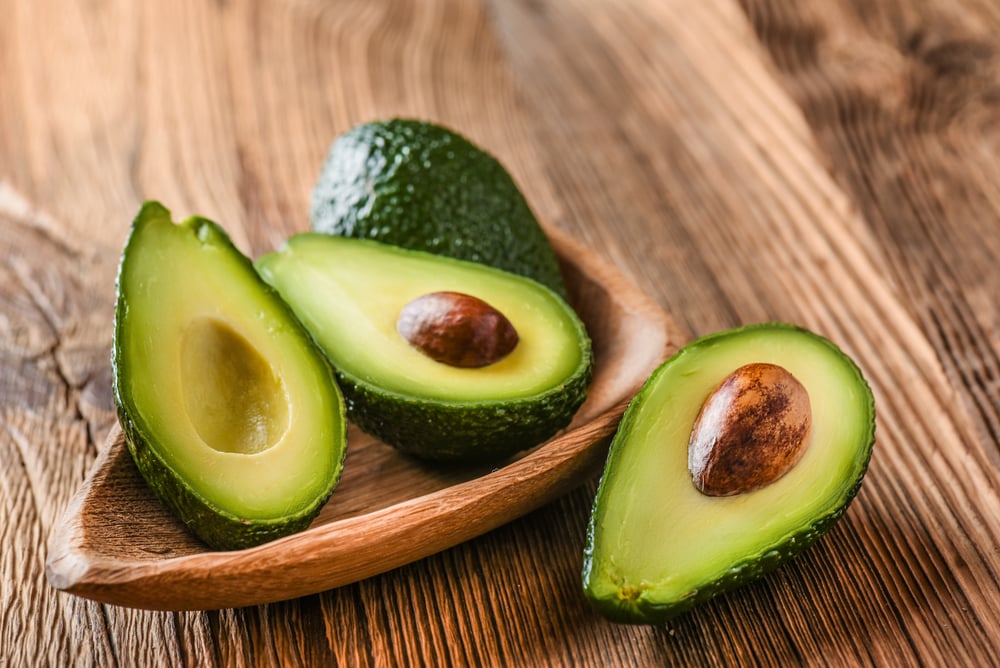
While we’ve established bread as a less-than-ideal food for ducks, certain other foods are also off the menu:
- Avocado, onions, and raw/green potatoes: These contain chemicals that can harm ducks.
- Raw or dried beans: These contain the poison phytohaemagglutinin, which causes red blood cells to clump together.
- Salt: Excessive salt can lead to eggshell deformities and other health issues.
- Fruit seeds and pits: Many fruit seeds contain cyanotoxins, which can be harmful to ducks.
- Chocolate and caffeine: These substances are toxic to ducks and can even be lethal.
You May Also Like: Unveiling 26 Types Of Geese From Around The Globe And Their Characteristics: From Wild Wonders To Domestic Delights
Can Ducks Eat Bread FAQs
Is a wild duck’s diet different from a domestic duck’s diet?
Wild ducks have a diet that is very good for them. However, it does not contain the same amount of carbohydrates and proteins as domestic duck food.
Domestic ducks need more nutrients as they are producing eggs and have heavier bodies bred for eggs or meat. They are unable to forage to the same extent that a wild duck would.
Are all vegetables and fruits good for ducks?
Not all vegetables and fruits are good for ducks. For example, avocados, uncooked beans, and rhubarb are poisonous to ducks.
Are swans a type of duck?
Swans are in the same waterbird family as ducks, the Anatidae. However, they have a separate genus; swans are Cygnus and ducks are Anas.
Swans have long necks, are one color all over, and are much larger. They are closely related to ducks, but they are not a type of duck.
What do swans eat in the wild?
Swans are omnivorous, too. They will eat water weeds like stonewort and widgeon grass as well as pondweed. They eat tadpoles and insects.
In salt water environments, they eat molluscs and insects. They eat plants such as club rush, sea arrow grass, and algae.
Is soaking food good for ducks?
Soaking food in water is beneficial for ducks. This makes it easier for them to digest. It also stops other animals, such as chickens or rats, from stealing their food. Soaking dry grains is a good way to keep ducks happy.
Can ducks eat chicken food?
Chicken food doesn’t have all the nutrients growing ducklings need. It is not the same as duck food. It’s especially important not to give ducks chicken food before they are 3 weeks old.
After that, some breeders do give chicken food to their ducks. They carefully supplement this with other foods that ducks need.


